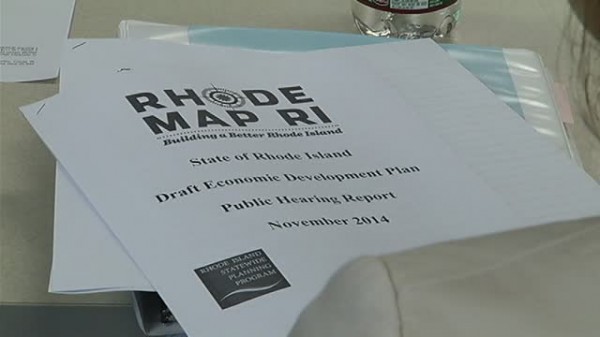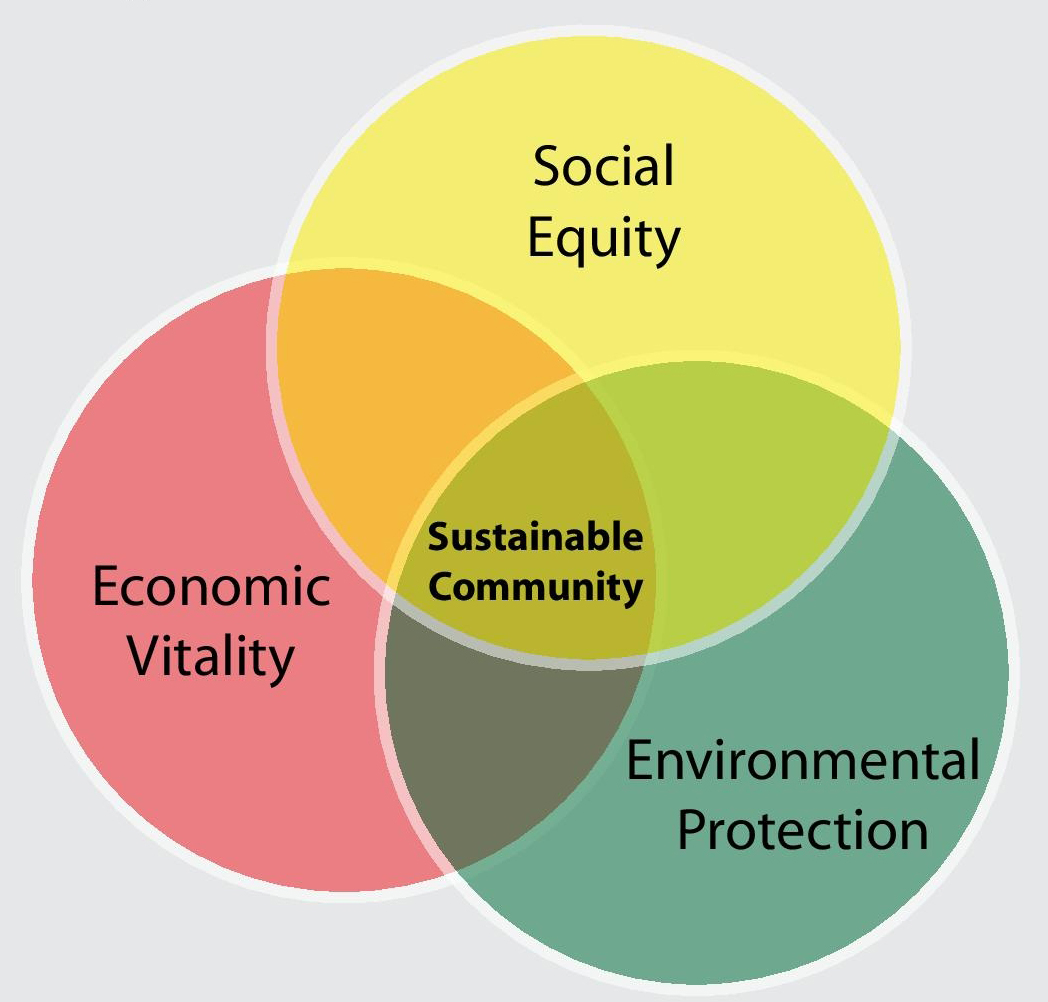 The Rhode Island State Planning Council delayed a vote on a draft Economic Development Plan for the State of Rhode Island. The draft plan, which has been under development for more than two years as part of an initiative known as Rhode Map RI, emphasizes the very unradical notion of building on our strengths. In recent weeks, critics of the plan have put forward a great deal of misinformation and misinterpretation that has threatened to undermine public confidence in this forward-looking and sorely needed economic development plan.
The Rhode Island State Planning Council delayed a vote on a draft Economic Development Plan for the State of Rhode Island. The draft plan, which has been under development for more than two years as part of an initiative known as Rhode Map RI, emphasizes the very unradical notion of building on our strengths. In recent weeks, critics of the plan have put forward a great deal of misinformation and misinterpretation that has threatened to undermine public confidence in this forward-looking and sorely needed economic development plan.
Grow Smart is proud to have been a member of the consortium of state agencies and public and private organizations that guided the development of the Economic Development Plan now under consideration. We strongly support its adoption by the State Planning Council. We believe that the Council, Rhode Island’s elected officials and the people of Rhode Island can have full confidence in the transparent and open public process through which the plan was developed, the extensive research on which the plan is based, and the recommendations that the plan makes. We are writing to set the record straight on some of the misinformation that has been presented as fact.
False Assertion: The plan would amount to “ceding (Rhode Island’s) sovereignty to federal government agencies.”
Fact: The plan reflects the thinking of public and private Rhode Island interests. The extent to which it is implemented and what specific strategies will be used will be decided by the Governor, the General Assembly, municipal governments and private businesses and organizations. Rhode Island did not have the resources to undertake a planning process of this magnitude. Therefore, the state applied to the US Department of Housing and Urban Development’s Sustainable Communities grant program to secure the funding required for the research, writing and coordination of the public outreach effort that went into the preparation of the economic development plan. However, that research, writing and public outreach was managed by the Rhode Island Division of Planning and guided by a Consortium made up of representatives from Rhode Island state agencies and private organizations.
Furthermore, it is critical to remember that this is a plan. The fact that it was produced with the assistance of Federal funds in no way enables Federal interests to insert themselves in decisions as to how the various strategies contained in the plan will be implemented. Those decisions rest with the State Executive and Legislative Branches, with municipal governments and with private businesses and organizations.
False Assertion: The plan is not an economic development plan.
Fact: The draft plan was written to comply with a mandate from the General Assembly which directed the economic development corporation and the division of planning to produce a strategic plan that would include:
- A unified economic development strategy for the state that integrates business growth with land use and transportation choices;
- An analysis of how the state’s infrastructure can best support this unified economic development strategy;
- A focus and prioritization that the outcomes of the economic development strategy be equitable for all Rhode Islanders;
- Reliance on comprehensive economic data and analysis relating to Rhode Island’s economic competitiveness, business climate, national and regional reputation, and present economic development resources;
- Suggestions for improving and expanding the skills, abilities, and resources of state agencies, municipalities, and community partners to speed implementation of the plan’s recommendations; and
- The inclusion of detailed implementation plans, including stated goals, specific performance measures and indicators.
The plan, which was written with input from business leaders around the state, outlines six goals for strengthening our economy: provide educational and training opportunities to activate a 21st-century workforce; foster an inclusive economy that targets opportunity to typically underserved populations; support industries and investments that play to Rhode Island’s strengths; create great places by coordinating economic, housing and transportation investments; create a stronger and more resilient Rhode Island; and make Rhode Island a state where companies, workers, and the state as a whole can develop a competitive advantage.
It advocates strengthening the state historic tax credit program; supporting industries and investments that play to Rhode Island’s strengths including the marine, defense, arts and food sectors; better marketing of our tourism brand and assets; regulatory reform / streamlining; and “…setting fair tax policies consistent with those of other states.” The plan also asserts that expanded workforce training and a better education system are important to ensure that Rhode Island’s workforce meets the needs of employers and that the growing minority population in RI is as economically productive and self sufficient as possible. This call for social equity has especially inflamed the most vocal critics of the plan, even though it is in the enlightened economic self interest of all Rhode Islanders.
False Assertion: The plan is an “extreme social engineering scheme” that would “block paths to property ownership and infringe on rights of property owners.
Fact: As noted above, the General Assembly directed that the economic development strategy should “integrate business growth with land use and transportation choices,” and should include “a focus and prioritization that the outcomes of the economic development strategy be equitable for all Rhode Islanders. Responding to those directions, the plan recommends location of housing and businesses that will promote access to work opportunities. These recommendations do not infringe on the rights of property owners.
False Assertion: The plan’s development process did not provide the public and the business community with an opportunity for input.
Fact: From the beginning Rhode Map RI has been characterized by extensive public outreach and many opportunities for public input. Over the last year and a half, public input sessions have been held in every corner of the state. The public input phase launched with coverage in the Providence Journal, and all sessions were publicized through press releases and social media. Opportunities for electronic input were also provided. The research and drafting of the economic development plan was guided by a diverse Economic Development Committee with representation from such strongly pro-business and pro growth organizations as the Greater Providence Chamber of Commerce, the Rhode Island Builders Association, the Rhode Island Nursery and Landscape Association, and the business funded Providence Foundation. In addition, the Rhode Island Foundation and Commerce RI co-hosted a series of workshops during which over 300 business leaders discussed their needs and identified ways to work together with the state to build on Rhode Island’s strengths. The State Planning Council held public hearings for the draft Economic Development Plan on October 27 and 28 at which 62 individuals testified. In all, more than 1,000 people have contributed their input.
False Assertion: There is no reason not to delay passage of the Plan in order to allow for further discussion.
Fact: The draft Economic Development Plan has been developed to comply with legislation passed by the General Assembly requiring that such a plan be developed and that it be submitted on or before October 31, 2014. In 2013, the RI General Assembly passed a law directing that, “(a) The economic development corporation and the division of planning shall develop a written long-term economic development vision and policy for the state of Rhode Island and a strategic plan for implementing this policy. . . (b) On or before October 31, 2014, the economic development corporation and the division of planning shall submit the written long-term economic development vision and policy and implementation plan to the governor, the senate and the house of representatives.” The Division of Planning’s standard practice is to submit plans to the State Planning Council for approval and to have the Council hold public hearings on proposed plans. In keeping with that practice, public hearings were held and the State Planning Council vote was scheduled so that the Plan would be ready for submission to the governor, the senate and the house or representatives as close to the October 31, 2014 deadline as possible.



